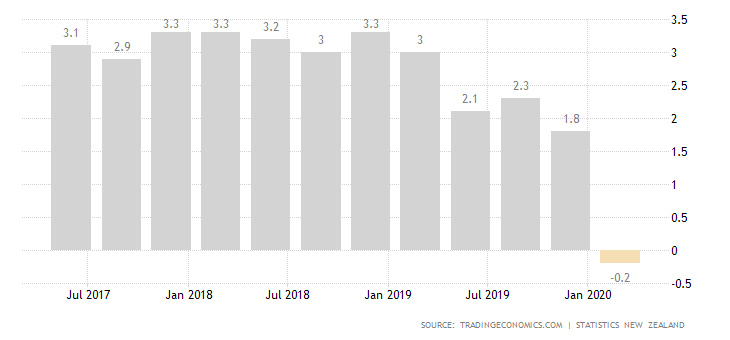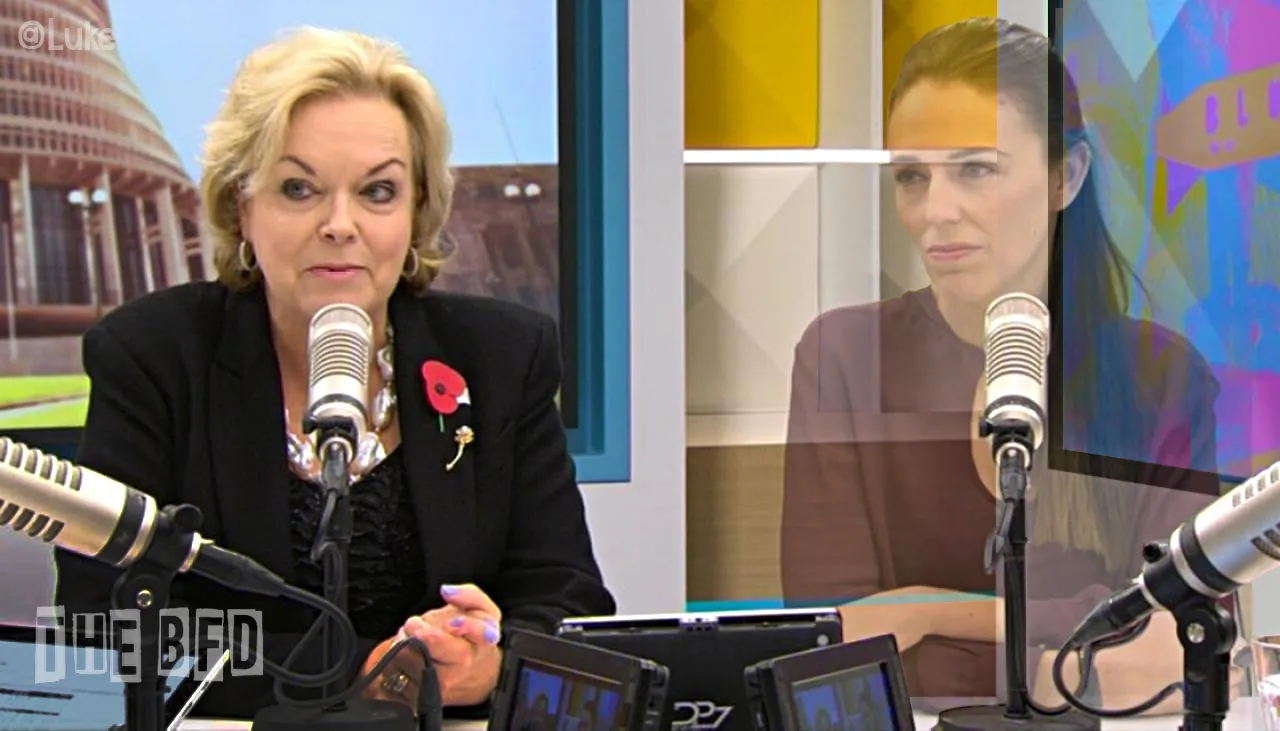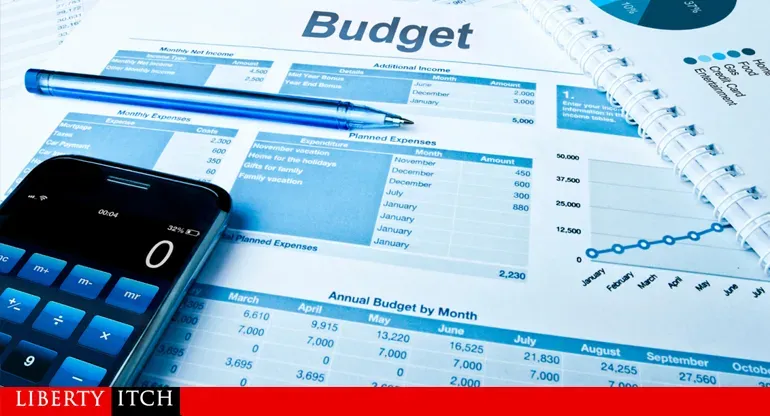Table of Contents
Reputations are made or lost in the court of public opinion, and until now Collins was at the mercy of knives wielded by the members of her own party, but this changed overnight when she was appointed leader. Collins now calls the shots and she has made her aspirations clear: to take the fight to the government who promised much but delivered little. Collins has promised to do her best to crush them at the next election. Her motivation is to salvage our ailing economy because New Zealanders deserve better than to lose the shirts off their own backs.
Jacinda Ardern’s reputation hangs in tatters. After “An economy that is growing and working for all of us” a huge disconnect exists between the objective and the coalition’s policies which directly hamper economic growth.
Non-delivery: GDP Growth
Economic growth is conventionally measured as the percent rate of increase in real gross domestic product, or real GDP, so what has the government failed to deliver?

Non-delivery: Transformational Well Being Budget
Labour swept aside any notion of measuring economic growth with their “transformational” Well Being Budget when Grant Robertson said:
“Governments have declared success on a narrow range of indicators in particular GDP growth. But New Zealanders have rightly questioned such claims of success when the things they hold dear, such as child wellbeing, a warm dry home for everybody or the ability to swim in our rivers or lakes has been getting considerably worse. The old way of doing things has left too many people behind.”
In other words, forget the numbers, look at the improvements.
Non-delivery: Business Confidence
Liam Dann writing for the NZ Herald says investment intentions and profit expectations of firms have fallen “to dismal levels”, according to ANZ in its latest Business Outlook survey.
The September ANZ Business Outlook Survey saw headline confidence fall 2 points, with a net 54 per cent of respondents reporting that they expect general business conditions to deteriorate in the year ahead – the lowest since April 2008
Firms’ expectations for their own activity over the year ahead fell 1 point, The fourth fall in a row, and the lowest read since April 2009.
NZ Herald
Non-delivery: Free Trade Agreements
We can’t grow without increasing trade To date we don’t have an FTA with Russia or with the USA and we still haven’t resolved the disagreement with China that surfaced earlier this year.
“A barrage of headlines have suggested souring relations: The much-vaunted “Year of Chinese Tourism” has been postponed indefinitely; Auckland’s Chinese consulate is warning tourists about robberies and visa difficulties; and Chinese telecommunications company Huawei has launched an aggressive public influence campaign, after it was blocked from building Spark’s 5G mobile network.
On top of that, Prime Minister Jacinda Ardern still hasn’t secured a visit to Beijing 16 months after taking up office. Before her, every prime minister since Robert Muldoon visited China in their first year of the job.”
Stuff
Non-delivery: Oil and Gas Industry
“The New Zealand Government’s decision to ban new oil and gas exploration permits will see a series of strongly negative impacts ripple through the economy.
The decision prevents the granting of new exploration permits outside of onshore Taranaki and was given effect through the Crown Minerals (Petroleum) Amendment Act 2018.“
PEPANZ
Non-delivery: Farming
Dairy is a major contributor to New Zealand’s living standards and plays a crucial role in supporting regional economic development, according to an NZIER report released recently.
“Federated Farmers said the [government] proposals were unnecessarily stringent and “throwing farmers under the tractor”, arguing some of the requirements would see parts of New Zealand have to reduce their nitrogen levels by up to 80 per cent.
“It becomes very hard to continue economically farming animals or growing vegetables under a regime like this,” environment and water spokesperson Chris Allen said.
“The long-term targets for nitrogen reduction, are effectively unachievable in some parts of the country, and will end pastoral farming in these areas.”
The 19 proposals outlined on Thursday include new rules that will affect both country and city. But in one of the most significant changes, the Government plans to from June, 2020 restrict further intensification of rural land.”
NZ Herald
Non-delivery: Marsden Point Pipeline
A year after the Auckland fuel pipeline leak that cancelled scores of flights from Auckland airport, the Government had not followed through with their promised independent inquiry. Jump forward another 12 months and Energy Minister Megan Woods’s report was out but with no plans to build a second pipeline. Any further disruptions will have a negative effect on tourism.
“An independent report investigating the condition of the fuel pipeline between Marsden Point and Auckland has found that “Auckland’s jet fuel supply is currently not sufficiently resilient“.
Newsroom
Non-delivery: Waitaha River Hydro Scheme
Ngati Waewae chair Francois Tumahai said that decision was shortsighted and went against the wishes of most people in the community. “If you come down here and speak to people on the ground, there’s overwhelming support on the coast for it, from everyone,” he said. “From the Tai Poutini Conservation Board, DOC supported it in principle, both iwi support it, the three councils, 90 percent of the population on the coast support this. “[The minister] has made the decision from some office in Wellington, which actually has a huge impact on us on the coast, it’s just crazy. Absolute madness.” Mr Tumahai said the development would have provided essential power to the region, and created much-needed jobs. “There’s a $100 million worth of investment going into the region. We don’t have any electrical resilience here and this will help that.
Radio NZ
Non-delivery: Labour market
Businesses continue to report staff shortages and yet “the Ministry of Social Development’s benefit data for the June 2019 quarter showed a 5.2 per cent jump in the number of working-age people receiving main benefits in the last year. It showed 291,969 working-age people on a benefit, which was 9.7 per cent of the working-age population. This included jobseeker support, sole parent support and supported living payment.”
Why then did the government announce plans to make it easier for employers to bring temporary workers into the country?
Non-delivery: Road & Rail Development
This government’s 10-year transport plan cut more than $5 billion from state highway upgrades and channelled the money into public transport such as light rail, urban cycleways and safety improvements on urban and regional roads in a bid to lower the road toll. It seeems the economic downside of refusing to address congested roads didn’t even enter their minds.
To achieve her goal Collins must set a high bar. The sniff of success should be enough to ensure prospective dissidents in her team stay the course, and in a perfect world, they would. But in the real world, some will grow into Collins’ higher expectations and some will bail because they do not perform. After the recent clearing out of the ranks, residual traitors will find their backs to the wall if they choose to act on their latent treachery. But really, why would you?
Compare Collins’s team with Ardern’s less than a handful of ministers (carrying more portfolios simply because no one else is up to the task) with a legacy of non-delivery. Which team would you back to get our economy back on the rails?
If you enjoyed this BFD article please consider sharing it with your friends.









